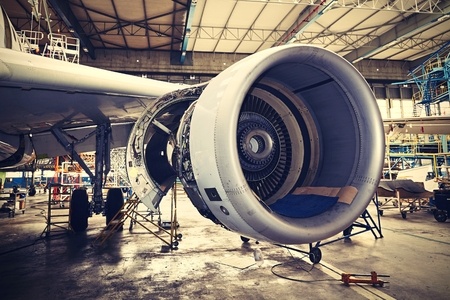Overview
There was a time when aircraft owners were a frequent target of accident litigation. Despite frequent assertion by the defense bar (including the author) of the reasons that mere ownership without more (such as improper operation or maintenance) was not a valid basis for liability, claims against owners persisted. The most recent attempt to assert liability against an owner whose only involvement in an accident was the appearance of his name on title caused us to realize that these claims have slowly fallen out of favor.
the defense bar (including the author) of the reasons that mere ownership without more (such as improper operation or maintenance) was not a valid basis for liability, claims against owners persisted. The most recent attempt to assert liability against an owner whose only involvement in an accident was the appearance of his name on title caused us to realize that these claims have slowly fallen out of favor.
Still, it may be helpful to lay out the primary defenses available when defending allegations that ownership of an aircraft should be sufficient to establish liability for an accident. First, many states have a statute that provides something like this:
The liability of the owner, lessee and pilot of every aircraft or spacecraft operating over the lands or waters of this state for injuries or damage to persons or property on the land or water beneath, caused by the ascent, descent or flight of such aircraft or spacecraft, or the dropping or falling of the aircraft or spacecraft or of any object or material therefrom, shall be determined by the law applicable to torts on land, except that there shall be a presumption of liability on the part of the owner, lessee or pilot, as the case may be, where injury or damage is caused by the dropping or falling of the aircraft or spacecraft or of any object or material therefrom, which presumption may be rebutted by proof that the injury or damage was not caused by negligence on the part of the owner, lessee or pilot and the burden of proof in such case shall be upon such owner, lessee or pilot to show absence of negligence on his or her part.
W. S. A. 114.05, WI ST 114.05. Such statutes can be summed up by stating that owners are liable if they are found negligent for their activities in the state. Some statutes go further in establishing more far reaching presumptions in favor of owner liability or even strict liability. However, sophisticated owners can avoid the implications of harsher statutes by making use of the following federal statute:
A lessor, owner, or secured party is liable for personal injury, death, or property loss or damage on land or water only when a civil aircraft, aircraft engine, or propeller is in the actual possession or control of the lessor, owner, or secured party, and the personal injury, death, or property loss or damage occurs because of --
(1) the aircraft, engine, or propeller; or
(2) the flight of, or an object falling from, the aircraft, engine, or propeller.
49 U.S.C.A. § 44112. Thus, due to federal preemption, with few exceptions, regardless of what any given state statutes may provide, owners and lessors are generally only subject to liability when in possession, in other words – when they did something more than merely hold title. Note, in order for a lessor to take advantage of the Federal protection it must lease out the aircraft (or engine or propeller) for a minimum of 30 days. Also, some courts have held that lessors can only take advantage of this protection when the lease is part of a financing arrangement.
Some claims assert that owners should be liable for faulty maintenance upon their aircraft, regardless of the owner’s actual role in the maintenance item. However, as the Illinois Court of Appeals observed in Jarmuth v. Aldridge 747 NE2d 1014 (Ill.App.2001) the maintenance duties imposed under sections 119 and 121 of the Federal Aviation Regulations (FAR) (applicable to airlines and commercial carriers) are expressly non-delegable, but not so under section 91 of the FAR (applicable to private “general aviation” operators). Accordingly, unless the owner a) negligently failed to have the aircraft maintained; b) negligently retained his or her mechanic; or c) somehow participated in negligent maintenance, there should be no liability. This position was buttressed by the observation that part 91 refers to the owners’ primary responsibility for maintenance, thereby implying that maintenance responsibility could be properly delegated and shared by private, non-commercial operators.
From a practical standpoint, to the common owner who is not qualified to perform his or her own maintenance the best way they can discharge their maintenance duty is to hire a seemingly qualified mechanic, and if that mechanic does something improper that’s not the owner’s fault. Thus, even when negligent maintenance is alleged, merely owning a private aircraft does not provide a sufficient basis to establish liability for an accident, at least for standard category aircraft.
